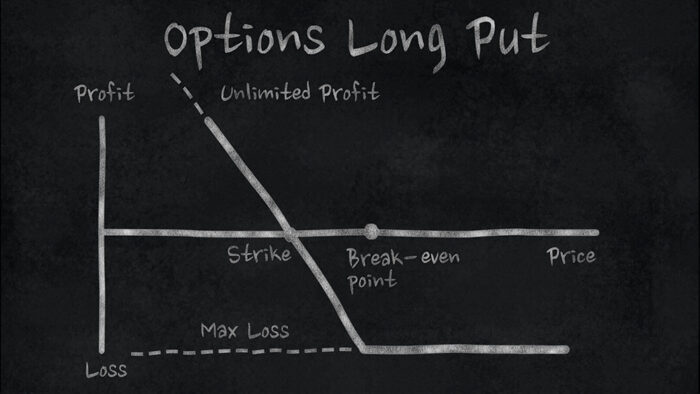Becoming a hedge fund trader is quite lucrative and has been a dream for several individuals who are extremely inclined towards financial markets. In this blog, we will discuss hedge funds from the perspective of job seekers in this role.
Let us find out more about hedge funds and how to become a hedge fund trader with this blog that covers:
- What is a hedge fund?
- Educational requirements at a hedge fund
- Skills required at a hedge fund
- How to prepare for a career at a hedge fund
- Job roles in hedge funds
- Hedge fund trader salary
- Tips for starting hedge fund jobs
- Pros of working at a hedge fund
- Cons of working at a hedge fund
- List of top hedge funds to work for
What is a hedge fund?
A hedge fund is an investment fund which uses pooled or accumulated wealth from the investors. The main aim of a hedge fund is to implement such trading strategies which help earn the maximum gains for all the investors as soon as possible.
Hence, they focus on short-term gains. Also, they use borrowed or leveraged funds for the same purpose of maximising the returns to the investors. Although, because of the risk involved with leveraged funds, hedge funds in the U.S.A and Europe were regulated following the financial crisis of 2007-08 in which the main reason for the crisis was increasing debt in the banking and financial institutions.
Educational requirements at a hedge fund
To answer the question “how to become a hedge fund trader?”, we have a list of bachelor’s and other degrees for you.
Bachelor’s degree
Speaking of the bachelor’s degree, you need to have your bachelor’s degree in one of the following:
- Finance
- Accounting
- Statistics
- Economics
- Engineering/Mathematics
Other qualifications
Apart from the bachelor’s, other preferred qualifications are:
- MBA (Master of Business Administration)
- MS Finance (Master of Science in Finance)
- CFA (Chartered Financial Analyst)
- CFP (Certified Financial Planner)
- CTFA (Certified Trust and Financial Advisor)
- CAIA (Chartered Alternative Investment Analyst)
- FRM (Financial Risk Manager)
Basically, you are preferred to have a few certifications and a passion for studying the financial markets. Moreover, having specialisation in one of the fields will help you tremendously in your career as a hedge fund employee.
This is so because each field offers knowledge unique to a particular role. For instance, having a piece of thorough knowledge in finance and accounting can help you with the analysis for investment.
Moreover, more than any qualification, sound experience in the field will help you gain the maximum expertise in your chosen role.
Skills required at a hedge fund
There are some skills which can help you at a hedge fund, and these are:
Quantitative analysis
In a quant-related job, you can find yourself getting the best skill-development time. You can opt for an economist position or a financial analyst position or can even write a thesis to get this skill.
Managing investments
This is one of the most critical skills at a hedge fund. With experience in managing your own investments, you can be ready to manage investments for a hedge fund as well.
Sound at discussing technicalities
You should be sound at discussing complex analytical or technical information in layman’s terms to be able to help investors with some jargon.
Strong mathematical and statistical skills
These skills may or may not be mandatory at a hedge fund. Some knowledge of mathematics, such as linear algebra, can be needed for applying machine learning models in your work.
Risk management
You must be knowledgeable about managing risks since hedge funds are sometimes high-risk investments which also procure high returns simultaneously. You can become a risk analyst at the entry-level in the hedge fund as well.
How to prepare for a career at a hedge fund
So, what else do hedge funds look for? How to become a hedge fund trader when there is so much competition?
Well, a set of interview questions and putting effort into preparing for some really important topics, such as logical reasoning, Python etc., beforehand will help a quant to get into a hedge fund tremendously.
But, it is not that the skills we discussed above are the only ways to enter a hedge fund and start your career in one. There are some other things which you must invest in to get a job at a hedge fund, and they are:
- Reading
- Internship
- Continuous learning
- Professional/Trading experience
- Staying focused
- Networking
Reading
Wanting to get a job in a hedge fund also brings with it the need to acquire as much knowledge as is possible about the same. And there is nothing better than reading a lot of investment oriented books.
You can find some very knowledgeable books online that you can refer to. Only as much as 20 minutes of dedicated reading from your busy schedule can help you gain enough knowledge.
Internship
To learn the trading secret and to acquire professional knowledge beforehand, you must start early and become an intern. After a thorough reading and acquiring some good theoretical knowledge, the next step is to gain some practical experience as well. With an internship, you will get an excellent opportunity to absorb the work of a hedge fund.
Continuous learning
Understanding the good and bad investments is of utmost importance here. You must reflect on those investments of yours which do well and learn from the ones that did not. Continuous learning is also very important when it comes to starting a career at a hedge fund.
Professional/Trading experience
A great professional experience at a hedge fund is the best way to kick-start your career. Learning how to build a strong hold on valuation and being good at excel can help you tremendously.
Moreover, you need to trust your decision-making and find out the best position in the market. This way, your skillset will be viewed as an asset.
Staying focused
Once you start off in one role, it is best to stick to it for the rest of your career instead of trying to jump on to another role. This way, any new hiring will not be a problem for you at any point in time.
Apart from you becoming confused with two roles, your employer can also be doubtful about your commitment and dedication toward a stream.
Networking
Networking is another crucial aspect of getting a job at a hedge fund. When you wish to do something for the first time, apart from reading, getting experience or internship, you must also connect with those who are already familiar with the role and can help you enter the role.
This way, you will be able to learn a lot from the steps they utilised to break into the industry.
Now that you have found out the types of jobs, educational requirements and skills needed to work at a hedge fund, let us take a look at the list of top hedge funds further.
Job roles in hedge funds
There are a variety of roles that a hedge fund trader comes across while trying to become a hedge fund trader. It is important to find out the different types of roles so that you can figure out which role fits you best.
These job roles at the beginning level at a hedge fund are:
- Intern
- Hedge fund sales
- Commodities trader
- Hedge fund analyst or Quant analyst
- Quant researcher
- Fund manager
Intern
Hedge fund interns usually assist in compiling financial records and reports for the market analysis. These entry-level professionals learn while being on the job by assisting full-time analysts and traders.
The interns work along with full-time analysts and traders to comprehend market trends and research markets for trading opportunities. Some companies offer a stipend. You can even earn a salary or hourly wage as an intern.
Hedge fund sales
An individual in hedge fund sales department is the first point of contact for customers, who need an insight into the FX market. The job of hedge fund sales helps the customers by providing the much needed knowledge regarding the world of currencies, rates and hedging.
Also, the role demands the individual to guide the customer to implement the trading strategy as efficiently as possible and help reduce risks and strengthen trust.
Commodities trader
A commodity trader assumes day-to-day trading activities, which include executing trades on the basis of trading plan and market conditions. The commodity trader needs to hold a sound understanding of the commodity market.
Hedge fund analyst or Quant analyst
Hedge fund analysts collect, compile, and analyse financial data relevant to hedge funds. An analyst recommends courses of action that mitigate risk and maximise profitability.
The quant analysts create and develop ideas for their investments, both current and in the future. The quant analyst also reviews their collection of quantitative data to determine the best courses of action to take.
Also, they suggest stocks to sell or short and create reports for the risk management team in order to provide them with information as to how particular selling and buying of stocks is safe and non-risky.
Quant researcher
A quantitative researcher performs mathematics based technical analysis to help the financial services firms and investment banks make trade related decisions while mitigating potential risk.
Fund manager
A fund manager’s responsibility is to implement a fund’s investment strategy and manage its trading activities.
Hedge fund trader salary
A hedge fund trader’s salary is the most important topic when it comes to the role you are aspiring for at the hedge fund.
Take a look at the table below with the different job roles at a hedge fund and the CTC for each role:
| Job Role | CTC (Emerging markets) | CTC (Developed markets) |
| Hedge Fund Sales | $15,000 | $60,000 |
| Commodities trader | $28,000 | $99,000 |
| Hedge fund analyst or Quant Analyst | $18,000 | $70,000 |
| Quant Researcher | $33,000 | $120,000 |
| Fund manager | $14,698.20 | $70,000 |
Please note that this is the CTC computed from leading portals such as Indeed, LinkedIn, Payscale and Glassdoor. The job role trader and sales in addition to the base salary have a large component of variable pay linked to performance.
*Note: The CTC figures and the compensation for an intern vary across companies, countries, experiences and other factors.*
Visit QuantInsti to read the full article: https://blog.quantinsti.com/hedge-fund-jobs/.
Disclosure: Interactive Brokers
Information posted on IBKR Campus that is provided by third-parties does NOT constitute a recommendation that you should contract for the services of that third party. Third-party participants who contribute to IBKR Campus are independent of Interactive Brokers and Interactive Brokers does not make any representations or warranties concerning the services offered, their past or future performance, or the accuracy of the information provided by the third party. Past performance is no guarantee of future results.
This material is from QuantInsti and is being posted with its permission. The views expressed in this material are solely those of the author and/or QuantInsti and Interactive Brokers is not endorsing or recommending any investment or trading discussed in the material. This material is not and should not be construed as an offer to buy or sell any security. It should not be construed as research or investment advice or a recommendation to buy, sell or hold any security or commodity. This material does not and is not intended to take into account the particular financial conditions, investment objectives or requirements of individual customers. Before acting on this material, you should consider whether it is suitable for your particular circumstances and, as necessary, seek professional advice.
Disclosure: Complex or Leveraged Exchange-Traded Products
Complex or Leveraged Exchange-Traded Products are complicated instruments that should only be used by sophisticated investors who fully understand the terms, investment strategy, and risks associated with the products. Learn more about the risks here: https://gdcdyn.interactivebrokers.com/Universal/servlet/Registration_v2.formSampleView?formdb=4155
Disclosure: Hedge Funds
Hedge Funds are highly speculative, and investors may lose their entire investment.

















